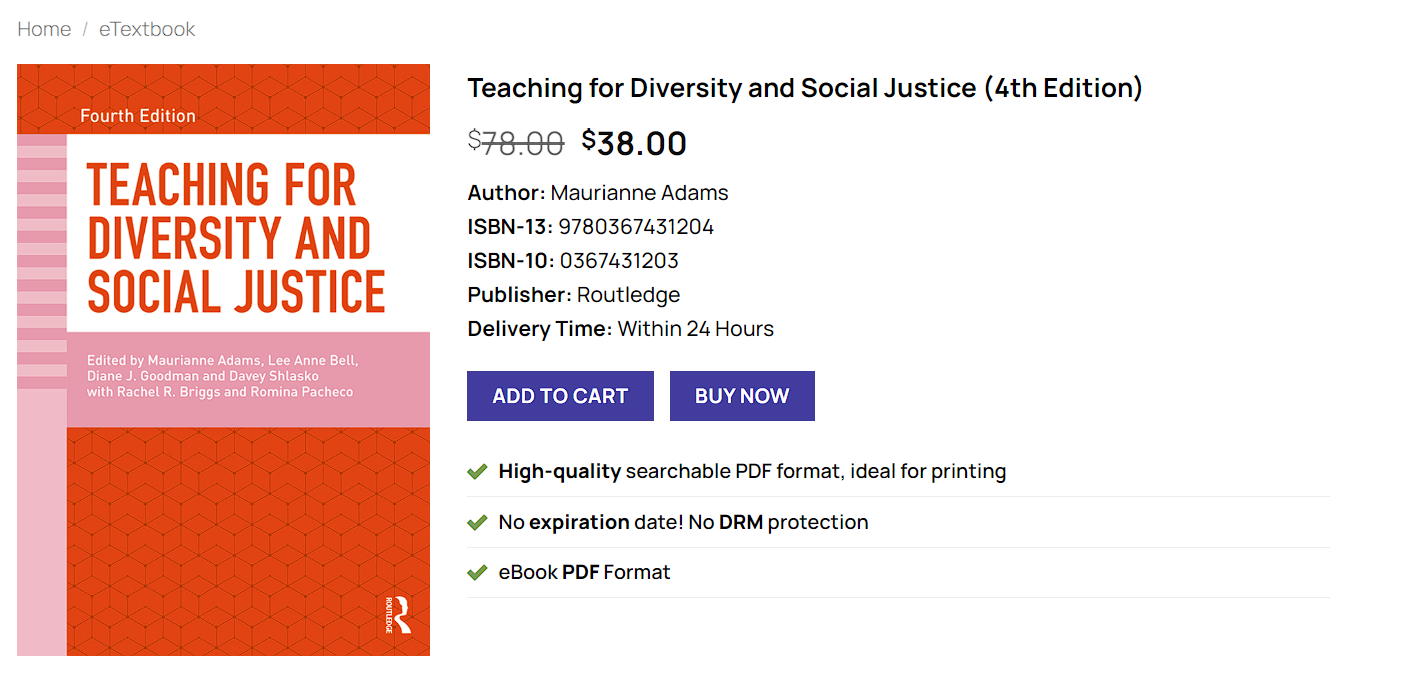Teaching for Diversity and Social Justice 4th Edition is a comprehensive guide that explores the importance of incorporating diversity and social justice principles into education. In this article, we will delve into the key concepts and principles presented in this influential book.
Understanding Diversity
Diversity encompasses the rich tapestry of human experiences, including but not limited to race, ethnicity, gender, sexual orientation, socioeconomic status, and ability. The book emphasizes that acknowledging and embracing diversity is vital for creating inclusive learning environments.
Promoting Social Justice
Social justice involves challenging and dismantling systems of oppression and inequality. The book emphasizes the importance of fostering critical consciousness and empowering students to recognize and challenge social injustices in their communities.
Equity and Inclusion
Teaching for Diversity and Social Justice highlights the need for equitable educational practices. It encourages educators to address disparities in access to resources and opportunities, ensuring that all students have an equal chance to succeed. Inclusive teaching strategies are also explored, such as incorporating diverse perspectives and experiences into the curriculum.
Intersectionality
The book introduces the concept of intersectionality, which recognizes that individuals hold multiple social identities that intersect and interact with one another. It emphasizes the importance of understanding the unique experiences and challenges faced by individuals with multiple marginalized identities.
Action and Advocacy
Teaching for Diversity and Social Justice encourages educators to go beyond theory and take action. It provides practical strategies for promoting social justice in the classroom and beyond, including engaging in community activism and advocating for policy changes.
In conclusion, Teaching for Diversity and Social Justice 4th Edition offers a comprehensive framework for incorporating diversity and social justice principles into education. By understanding and applying the key concepts and principles presented in this book, educators can create inclusive and equitable learning environments that empower students to become agents of change in their communities.

